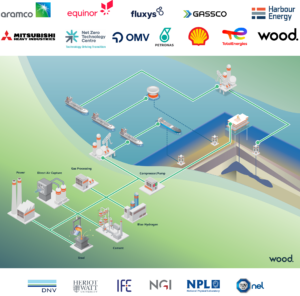Wood leads industry project to accelerate CCUS with guidelines for CO2 specifications

The guidelines are the first of their kind to focus on the impact of impurities in CO2 across the entire CCUS value chain.
These findings aim to accelerate the pace and growth of the CCUS industry by creating a CO2 conditioning standard to meet safety, environmental, technical and operational requirements.
Wood established the JIP to collate industry research and the experiences of operators currently operating in the CCUS space to determine the effects of impure CO2 in existing carbon capture chains. The findings from this collaboration determined the negative impact impurities from CO2 capture can cause from transportation through to storage and eventual usage.
Identifying this data allowed for the development of guidelines to affirm the CO2 conditioning standards required to meet the safety, environmental and operational necessary for sustainable CCUS production.
The members of the JIP include Wood, Aramco, Equinor, Fluxys, Gassco, Harbour Energy, Mitsubishi Heavy Industries, Net Zero Technology Centre, OMV, Petronas, Shell, and TotalEnergies.
The JIP also brought together industry and research experts, DNV, Heriot-Watt University, IFE, NGI, NPL and TÜV SÜD National Engineering Laboratory (NEL), with support from multiple licensors and equipment suppliers.
Azad Hessamodini, executive president for consulting at Wood, said: “We are proud to contribute to the industry by sharing these guidelines for setting CO2 specifications. CCUS will undoubtedly play a crucial role in reducing emissions from hard-to-abate sectors.
“These guidelines will support the safe and effective design of projects while minimizing operational risks. This collaborative effort made possible through invaluable input from our clients and research partners represents a significant step forward in developing CCUS practices knowledge across our industry.”















